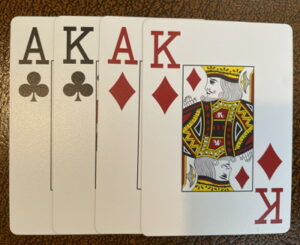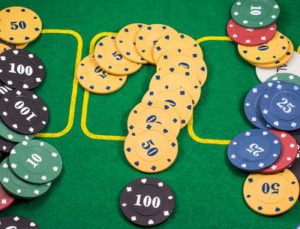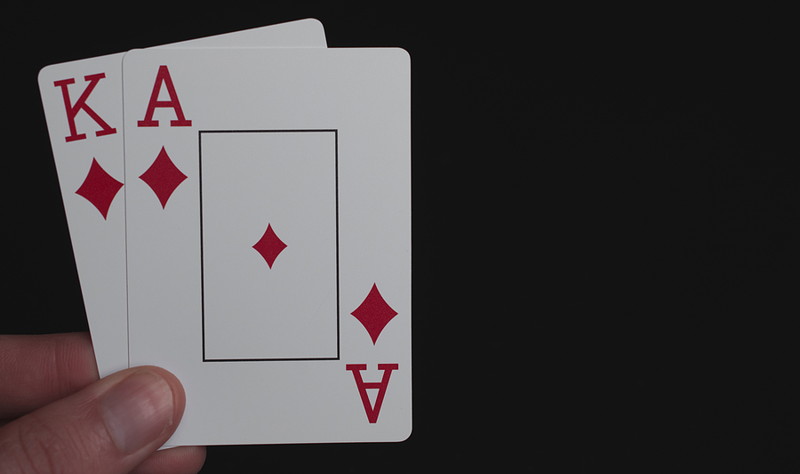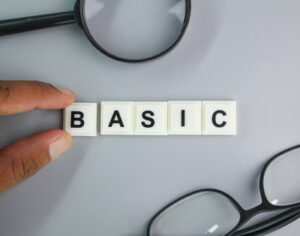 Although slightly overlooked in poker circles by its more famous cousin, No Limit Texas Hold’em (NLHE), Pot Limit Omaha (PLO) deserves more recognition than it often gets. Whether you play Hold’em, Five Card Stud or any other variant of poker, nothing comes close to PLO.
Although slightly overlooked in poker circles by its more famous cousin, No Limit Texas Hold’em (NLHE), Pot Limit Omaha (PLO) deserves more recognition than it often gets. Whether you play Hold’em, Five Card Stud or any other variant of poker, nothing comes close to PLO.
We are all familiar with the much quoted, often used Mike Sexton quote ”Texas Hold’em takes a minute to learn and a lifetime to master” but, trust us, PLO takes 10 minutes to learn and 100 lifetimes to master. And yet, it still gets overlooked, perhaps due to being more complex, even if ultimately it is more fun. Take a look at the World Series of Poker (WSOP). Of the 89 events, only 10 are dedicated to Omaha, not including mixed games or H.O.R.S.E. events.
We think that this is wrong and to make our point, here are 10 important things to know about playing PLO poker.
NLHE or PLO
 Although the two variants have a number of differences to set them apart, they require similar skill sets by anyone looking to take them down.
Although the two variants have a number of differences to set them apart, they require similar skill sets by anyone looking to take them down.
Firstly, PLO plays with four hole cards, also known as pocket cards, whereas NLHE only plays with two. But, of these four, PLO players must use two, whereas NLHE players can, if needed, technically overlook their hole cards altogether.
In both formats, players are required to make a five card poker hand from seven or nine cards, using two hole, and three community cards. But, as outlined above, in PLO, players have an extra two hole cards to select from and must use two of them.
What is PLO?

Pot Limit Omaha is the second most popular form of poker played today. Because players are issued with four hole cards, it is imperative that you have a very solid understanding of how to read the board, what makes the best winning hand combinations, how to count outs and how to calculate odds. This is true of NLHE also, but even more so in PLO.
In NLHE, the betting structure is no-limit meaning players can raise as much as possible to force their opponents hand. But, in PLO, the betting structure is pot-limit. By limit we mean bet size and the maximum bet you can make is equal to the size of the total pot including your bet.
You Need To Re-learn Your Poker Hands
 Because you now need to use two pocket cards, your hand values have changed which is worth keeping in mind if you regularly switch between PLO and NLHE. For example, in NLHE, if there are three hearts among the community cards and we’re holding Ace of Hearts also, we have four of a kind.
Because you now need to use two pocket cards, your hand values have changed which is worth keeping in mind if you regularly switch between PLO and NLHE. For example, in NLHE, if there are three hearts among the community cards and we’re holding Ace of Hearts also, we have four of a kind.
In Omaha, we would still need another Heart card in our pocket because we need to use both hole cards. If the Ace of Hearts is the only hole card we have, we cannot form the same hand, no matter how many hearts fall in the middle. In short, stop thinking like a NLHE player.
Greater Range
 Preflop hands in PLO have a greater range. Take a strong preflop hand of Ace of Hearts and Ace of Spades, which has a NLHE favouriting range of 82.36% over a pair of kings of the same suite.
Preflop hands in PLO have a greater range. Take a strong preflop hand of Ace of Hearts and Ace of Spades, which has a NLHE favouriting range of 82.36% over a pair of kings of the same suite.
However, in PLO the same hand – Ace of Spades and Ace of Hearts – paired with the 7 and 6 of, say, Diamonds, will only beat King of Hearts, King of Spades, Queen of Hearts and Jack of Spades approximately 59.84% of the time.
Strong starting hands

PLO success requires solid starting hand selection. I know you could say this about all forms of poker but in PLO it is particularly critical. The best PLO starting hands will include high-ended pairs that are also double-suited with connectors that allows them to improve preflop.
Two suits worth of Ace, Ace, King, King is the best pot-limit Omaha starting hand according to computer algorithms which is hardly surprising.
Common PLO Mistakes
 Anyone looking to be a successful PLO player would do well to remember a few things about this particular variant of poker. Firstly, do not ever, ever overvalue your hands. Overvaluing weak hands, such as two-pair or bottom set, is a very common and costly mistake in PLO.
Anyone looking to be a successful PLO player would do well to remember a few things about this particular variant of poker. Firstly, do not ever, ever overvalue your hands. Overvaluing weak hands, such as two-pair or bottom set, is a very common and costly mistake in PLO.
But, here’s the thing over-valuing Aces and other big pairs is another mishap in the making. Whereas holding a solitary pair by the time you reach the river offers slim hope in NLHE, it’s practically dead in Omaha.
Position is everything in PLO so do not get tempted to play too many hands when out of position, instead get it right when you’re in position. Slow playing, which can pay dividends in NLHE, should hardly ever be attempted in PLO because everyone is holding four cards meaning that they each have a greater amount of outs. Oh, and don’t play too many hands.
Stop Bluffing
 There is less bluffing in PLO poker, if someone reckons on having a strong hand, then the likelihood is they have, so be prepared and never go in weak. Bet sizing is a dead giveaway in PLO, more so than NLHE, even when attempting to pull off an almighty bluff.
There is less bluffing in PLO poker, if someone reckons on having a strong hand, then the likelihood is they have, so be prepared and never go in weak. Bet sizing is a dead giveaway in PLO, more so than NLHE, even when attempting to pull off an almighty bluff.
Many new comers to PLO have bet sizing leaks, betting the limit when holding the nuts, but shoving half when bluffing is easy for your opponents to read so bet consistently.
Watch that tilt
 Omaha is a particularly twisty game that can swing your way and the other in seconds. Because of this, you need strong emotional control to be successful. If you go on tilt easily, then this might not be the best game for you.
Omaha is a particularly twisty game that can swing your way and the other in seconds. Because of this, you need strong emotional control to be successful. If you go on tilt easily, then this might not be the best game for you.
It’s true, tilting can cost NLHE players dear too but this is a whole lot more relevant in PLO due to the nature of the game so remember to keep your cool in the face of extreme variance. If you suffer a few bad beats you need to stay on top of yourself or recognise the symptoms of an oncoming inner rage in which case, step back and take a break.
Basic Pot-Limit Omaha Strategy
 What we can take home from all of the above is that PLO is a complex game, so a defining winning strategy is hard to construct. That said, this is poker so we can suggest a few pointers that you can use to form the basis of a solid PLO strategy.
What we can take home from all of the above is that PLO is a complex game, so a defining winning strategy is hard to construct. That said, this is poker so we can suggest a few pointers that you can use to form the basis of a solid PLO strategy.
In PLO, you want to reach showdown with the strongest possible hand, because remember, bluffing is not an advised option, so be patient with your starting hand selection and don’t settle for any four cards thinking that they are worth playing. Also, while there will be times when you can play a weaker draw aggressively, drawing to the nuts works best.
Conclusion
In conclusion then, Pot Limit Omaha offers an exciting twist on other poker variants, creating swollen pots and where players put together big hands regularly.
Remember though, that playing PLO does require a heftier bankroll than NLHE due to the closeness in strength of hands both preflop and postflop which leads to players playing more hands and creating those swollen pots in the first place. But, because of this, the rewards, and the punishments, are very often greater.
